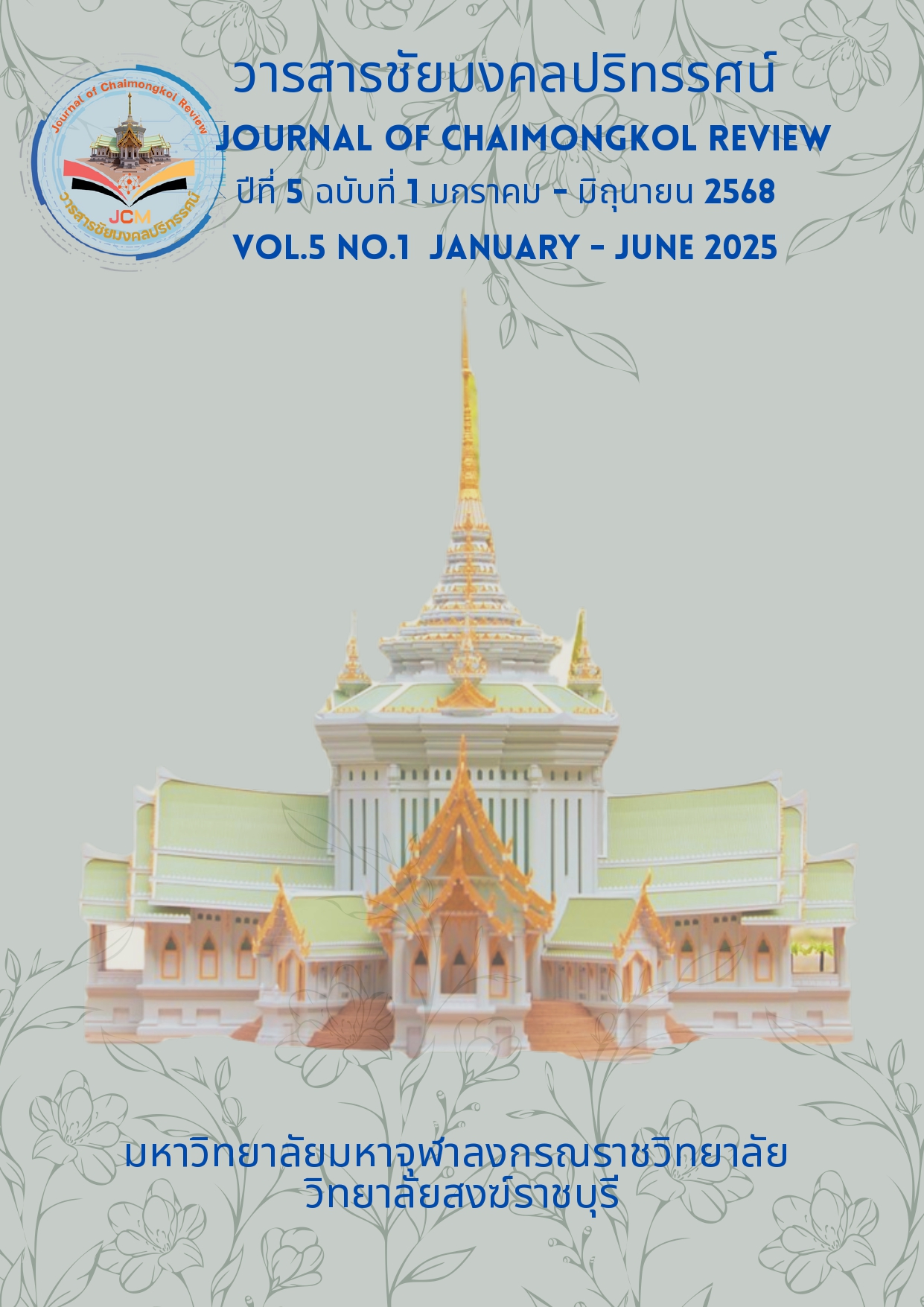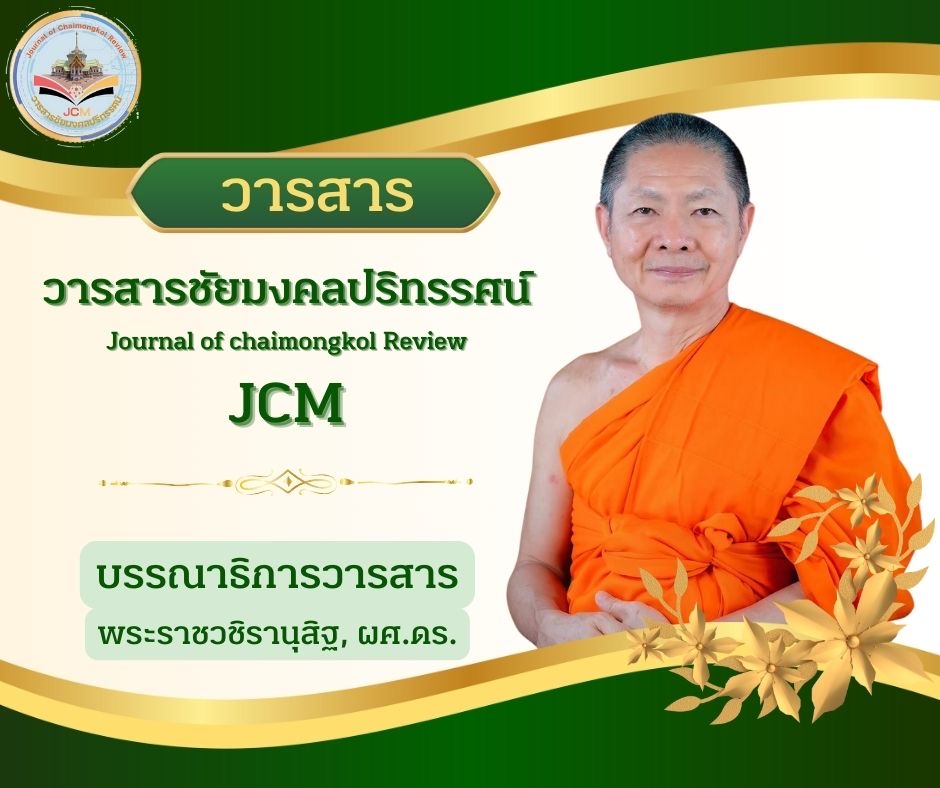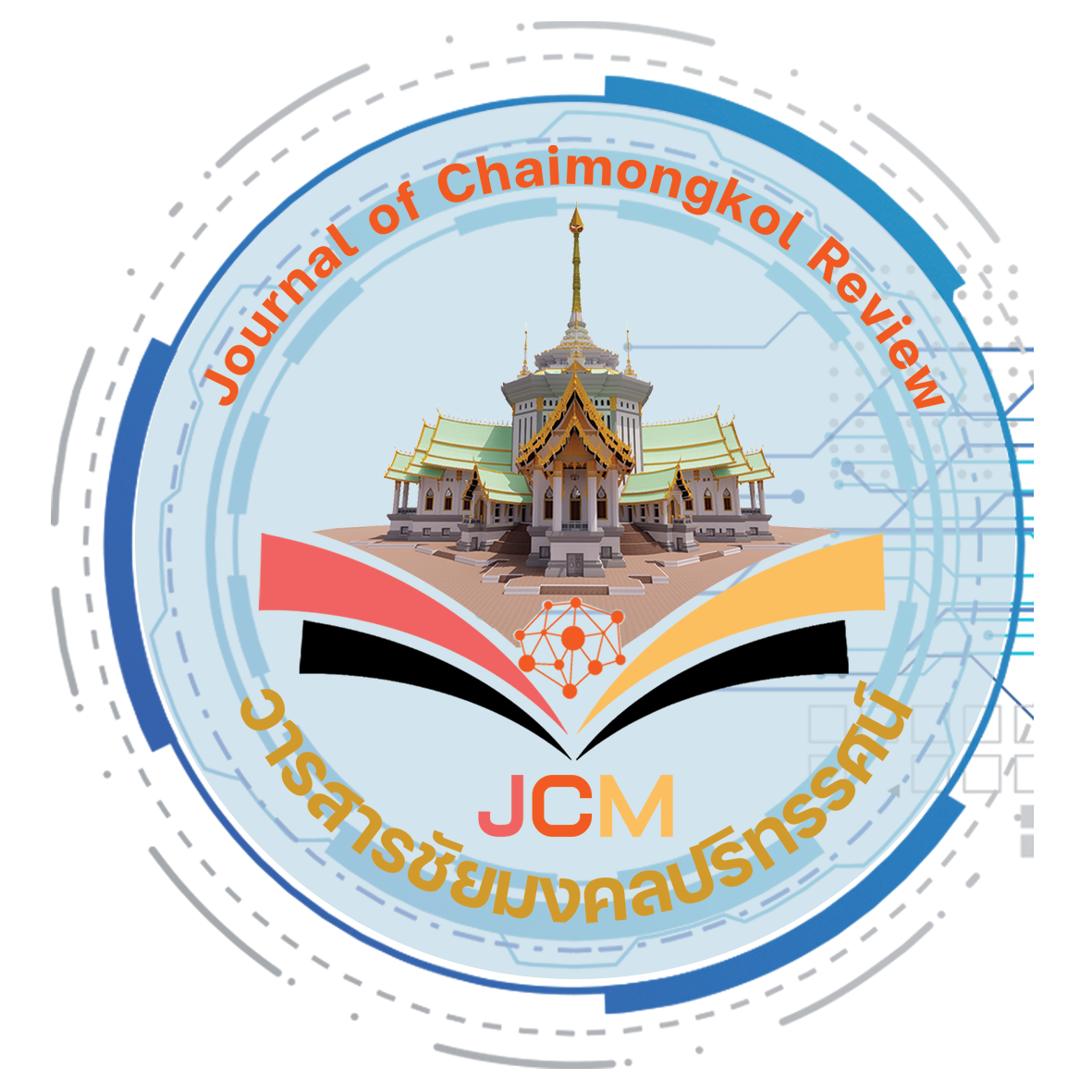FACTORS AFFECTING DEMOCRATIC CITIZENSHIP OF PEOPLE IN DON KHLANG SUBDISTRICT DAMNOEN SADUAK DISTRICT, RATCHABURI PROVINCE
Keywords:
lay principles, citizenship, democracyAbstract
This research aims to 1) study the level of democratic citizenship of people in Don Khlang Sub-district, Damnoen Saduak District, Ratchaburi Province; 2) study the factors affecting the democratic citizenship of people in Don Khlang Sub-district, Damnoen Saduak District, Ratchaburi Province; and 3) present the democratic citizenship of people in Don Khlang Sub-district, Damnoen Saduak District, Ratchaburi Province. The data were analyzed using descriptive statistics, including frequency, percentage, mean, standard deviation, and multiple regression analysis. The quantitative research instrument was a questionnaire, and the qualitative research collected data from key informants using the descriptive content analysis technique.
The research results found that 1. The level of democratic citizenship of people in Don Khlang Sub-district, Damnoen Saduak District, Ratchaburi Province was found to be at a high level overall. When considering each aspect, it was found to be at a high level in all aspects. 2. Factors affecting the democratic citizenship of people in Don Khlang Sub-district, Damnoen Saduak District Ratchaburi Province found that the 4 principles of lay morality had 3 aspects that had statistically significant effects at the 0.01 level, ranked according to the following equation: 1) Dhamma, training 2) Truth, honesty 3) Charity, sacrifice 3. Presenting the citizenship in a democratic regime of people in Don Khlang Subdistrict, Damnoen Saduak District, Ratchaburi Province by applying the principles of lay morality. There should be promotion of morality and ethics in a democratic regime. It should adhere to the principles of lay morality 4, namely, Truth, honesty, found that honesty that adheres to equality and responsibility; Dhamma, training, found that practicing morality by participating in politics and respecting the law; Khanti, endurance, found that tolerance for diversity to create justice; and Charity, sacrifice, found that sacrifice for the benefit of the public, resolving conflicts peacefully, and working to create a better future for the next generation.
References
ปริญญา เทวานฤมิตรกุล. (2555). การศึกษาเพื่อสร้างพลเมือง (Civic education). กรุงเทพมหานคร: นานมีบุ๊คส์พับลิเคชั่นส์.
พระชาณรงค์ โชติธมฺโม (ประเสริฐศรี). (2566). การบูรณาการหลักพุทธธรรมเพื่อส่งเสริมความเป็นพลเมืองในระบอบประชาธิปไตยของเยาวชนในกรุงเทพมหานคร (ดุษฎีนิพนธ์รัฐศาสตรดุษฎีบัณฑิต สาขาวิชารัฐศาสตร์). พระนครศรีอยุธยา: มหาวิทยาลัยมหาจุฬาลงกรณราชวิทยาลัย.
พระธรรมปิฎก (ป.อ. ปยุตฺโต). (2542). หลักฆราวาสธรรม 4 ประการ. สืบค้น 24 พฤษภาคม 2568, จาก https://pws.npru.ac.th/praepat/system/20220706084951_e17e64bb2221675c17edf8d8ef87a757.pdf.
พระครูบรรพตภาวนาวิธาน (มนินท์ จนฺทโก). (2566). การพัฒนาพลเมืองในระบอบประชาธิปไตยตามแนวพระพุทธศาสนา ของประชาชนอำเภอเมืองนครนายก (สารนิพนธ์รัฐศาสตรมหาบัณฑิต สาขาวิชารัฐศาสตร์). พระนครศรีอยุธยา: มหาวิทยาลัยมหาจุฬาลงกรณราชวิทยาลัย.
พระมหานิพนธ์ วีรพโล (ทบแก้ว). (2565). ปัจจัยที่มีผลต่อการบริหารจัดการกองทุนสัจจะออมทรัพย์เพื่อความเข้มแข็งของเศรษฐกิจชุมชนในจังหวัดระยอง (สารนิพนธ์รัฐศาสตรมหาบัณฑิต สาขาวิชารัฐศาสตร์). พระนครศรีอยุธยา: มหาวิทยาลัยมหาจุฬาลงกรณราชวิทยาลัย.
สำนักงานคณะกรรมการกฤษฎีกา. (2560). รัฐธรรมนูญแห่งราชอาณาจักรไทย พุทธศักราช 2560. กรุงเทพมหานคร: สำนักนายกรัฐมนตรี.
สมชาย แสงดาว. (2566). การส่งเสริมจริยธรรมตามหลักฆราวาสธรรมของนักเรียนนายสิบตำรวจ ศูนย์ฝึกอบรมตำรวจภูธรภาค 3 (สารนิพนธ์รัฐศาสตรมหาบัณฑิต สาขาวิชารัฐศาสตร์). พระนครศรีอยุธยา: มหาวิทยาลัยมหาจุฬาลงกรณราชวิทยาลัย.
Almond, G. A., & Verba, S. (1963). The civic culture: Political attitudes and democracy in five nations. Princeton University Press.
Marshall, T. H. (1950). Citizenship and social class. Cambridge University Press.







